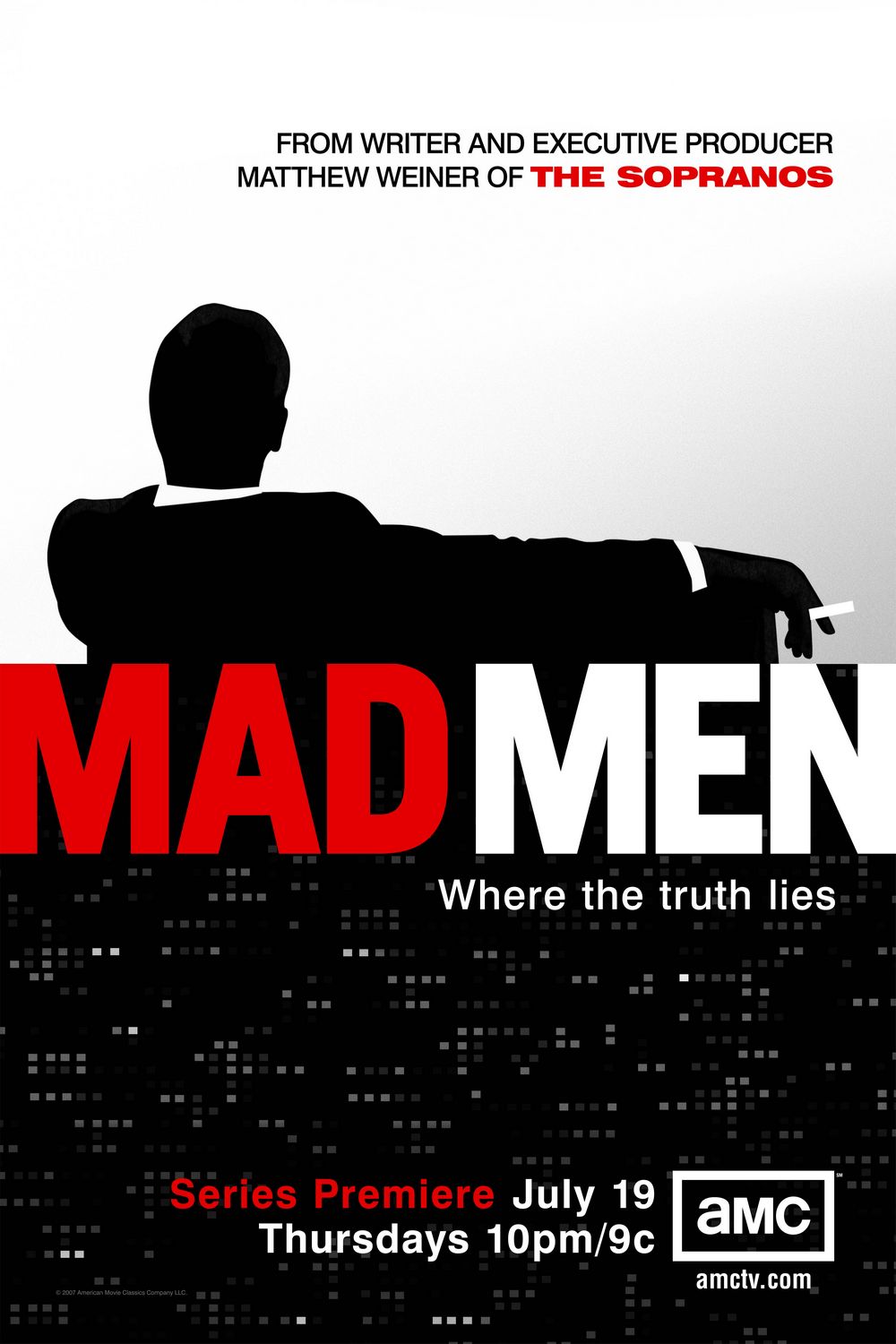 I’ve been a loyal fan of Mad Men from the first season. It’s not life-changing or anything but it’s a very well-written show with impeccable set design and attention to detail, and the character of Don Draper continues to fascinate me. He’s a good character.
I’ve been a loyal fan of Mad Men from the first season. It’s not life-changing or anything but it’s a very well-written show with impeccable set design and attention to detail, and the character of Don Draper continues to fascinate me. He’s a good character.
I also find myself thinking way too hard and long about things, as English Majors do. After watching Season Six of the show, I have a new idea. Mad Men isn’t about Don Draper at all. It’s about power, and the concept that it’s all just an illusion.
From the very first episode, that’s been the line, if you think about it. Way back in S1E1, Don is in a bind: He has a big pitch with the Lucky Strike folks and he doesn’t have a single viable idea. He’s in a sweat throughout the episode and in the final boardroom scene he’s sunk: He doesn’t have anything. He’s powerless.
Don’t forget, back in Episode 1, Don’s just a Junior Partner at the firm. He’s important to them because he’s the Idea Man, and clients like him, but he’s not irreplaceable as he would become in later seasons (and then un-become in Season 6, but more on that later). It’s implied that if he can’t come through for Lucky Strike he’s going to break a winning streak and it might not go well for him. He enters the room powerless, and then he gets an idea, sells that idea, and BOOM – he’s got his power back.
But did it ever really exist? That’s the question I think Mad Men comes back to over and over again: Is power more than just an illusion? And I think the answer the show gives us is: No.
###
Over and over again, Don Draper’s power is challenged. Pete Campbell discovers his identity secret and tries to hold it over him. Pete thinks he has power now, because if Don doesn’t do what he wants he’ll expose Don. Don’s power is an illusion, because it’s based on artifice, deception and lies. Pete’s power turns out to be an illusion too, because Don simply calls his bluff and reveals himself first, and Bert Cooper utters the best line of a season of television that was swimming with them: “Mr. Campbell – who cares?”
Don emerges just as powerful as before, even though his position is still based on deception. It’s his creative abilities that keep him powerful. The firm cannot do without him.
Later, when the firm is sold and Duck Phillips thinks he has trapped Don, the power seems to be all in Duck’s hands. Then Don reveals he does not have a contract, and therefore has no noncompete clause. Don’s still valuable as a creative, and so Duck loses all his power. Don’s still a facade, but he has power, because other people perceive him to have power.
Later, Don helps to steal an entire advertising agency out from under their English overlords. This is the summit of his power. His crowning moment, interesting because it involves nothing but deception. Don brings everyone into his sphere for one shining moment and no one can hope to defeat him when the battlefield is built on lies. Shut the Door, Have a Seat is one of the best hours of television ever made.
###
And then, downhill from there.
Don’s Power Moments have been fewer and further between in Seasons 5 and 6. He has had almost no moments of genius in the board room, selling clients. People have begun to push back at him. At the same time, more and more people know about his true identity – Megan, Betty, Pete, Bert, everyone in the board room after the Hershey’s pitch (though they may not realize it right away).
And finally, at the bitter end of Season 6, Don loses all of his power. Incidentally, after the Hershey’s Pitch, he’s broken down the facade. His power was rooted in an illusion of an inscrutable, well-groomed man with a mesmerizing voice and incredible creative abilities, and once that facade is gone so is his power, and Don is fired. Don Draper, essentially, ceased to exist. The man who Dick Whitman lied for, drove his half brother to suicide over, who Dick Whitman has done terrible, awful things for, was gone in an instant.
“Is any of that true?” Roger asks after the Hershey’s pitch.
“Yes,” Dick Whitman answers, and 24 hours later he’s fired.
###
Don could have been fired at any moment. He’s a partner in the firm, but he can be removed from his duties just like anyone. Don has never had any actual power – aside from economic power, because he is a wealthy man, and the power of his personality, which is also an illusion but a considerable one. Don’s power was always a lie.
As all power is.
